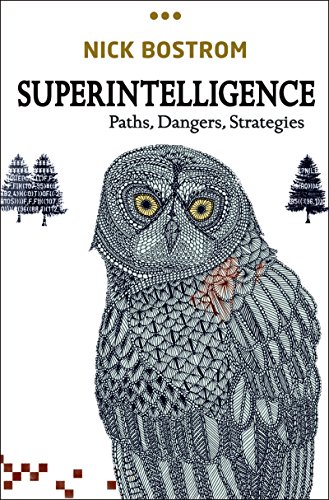7 Best-Selling Artificial General Intelligence Books Millions Trust
Insights from Bill Gates, Elon Musk, and Nils Nilsson on transformative AGI literature
Create a Artificial General Intelligence course with AI
Generate a personalized AI-powered course, tailored to your goals and topics of interest
There's something special about books that both critics and crowds love—especially in a field as complex and fast-evolving as Artificial General Intelligence (AGI). As AI technologies edge closer to human-level reasoning, understanding AGI has become vital for technologists, ethicists, and futurists alike. These best-selling books have shaped conversations around AGI's promises and perils, offering perspectives that millions of readers and top experts find insightful and actionable.
Among the voices amplifying these texts are Bill Gates, co-founder of Microsoft, whose endorsement of Superintelligence highlights its clarity on AI risks and future scenarios. Elon Musk, CEO of SpaceX and Tesla, also points to the importance of forward-looking AGI discussions. Meanwhile, Nils Nilsson, a pioneer of artificial intelligence at Stanford University, insists that Superintelligence is essential reading for anyone serious about the field. Their insights have propelled these books into the spotlight, making them not just popular but credible resources.
While these popular books provide proven frameworks and visionary outlooks, readers seeking content tailored to their specific Artificial General Intelligence needs might consider creating a personalized Artificial General Intelligence book that combines these validated approaches with your unique background and goals.
Recommended by Bill Gates
Co-Founder & Former CEO of Microsoft
“I highly recommend this book”
Drawing from his unique blend of expertise in philosophy, theoretical physics, and artificial intelligence, Nick Bostrom explores the profound implications of machines surpassing human intelligence. You’ll learn about the potential trajectories of superintelligence, the risks it poses, and the strategic challenges of controlling such an entity. The book delves deeply into scenarios like the intelligence explosion and the AI control problem, encouraging readers to grapple with ethical and existential questions. If you're curious about the future interplay between humanity and advanced AI systems, this book offers a thoughtful, well-structured framework to understand that complex terrain.
Recommended by Bill Gates
Co-Founder & Former CEO of Microsoft
“Ray Kurzweil is the best person I know at predicting the future of artificial intelligence.”
After analyzing decades of technological progress, Ray Kurzweil developed a detailed vision of humanity's future intertwined with artificial intelligence. Drawing from his extensive experience as an inventor and AI pioneer, he explores how exponential growth in computing, biotechnology, and nanotechnology will reshape human intelligence and life expectancy. You’ll gain insights into concepts like brain-computer interfaces, radical life extension, and the ethical challenges of autonomous systems, with chapters devoted to nanobots rebuilding matter and AI's impact on employment. This book suits those intrigued by the intersection of technology and human evolution, offering a thoughtful perspective rather than speculative hype.
This tailored book explores the engineering and development aspects of artificial general intelligence (AGI) with a focus that matches your background and goals. It covers foundational concepts such as cognitive architectures and development roadmaps, while delving into advanced topics like AGI system design and integration. By combining proven knowledge with your specific interests, it creates a personalized learning experience that addresses your unique challenges and ambitions in AGI development. This approach enables a deep understanding of both theoretical and practical dimensions, ensuring you gain insights directly relevant to your objectives.
This isn't another AI tome promising simple answers; instead, it gathers perspectives from active Artificial General Intelligence researchers tackling core theoretical challenges. You’ll explore conceptual and philosophical issues tied directly to building thinking machines, with chapters written to engage advanced undergraduates and scientists outside the immediate field. For example, early chapters dissect the foundational problems of cognition and propose novel solutions grounded in ongoing AGI projects. If you're invested in the conceptual underpinnings and future directions of AGI, this book offers insights that bridge theory with practical system development—though casual readers might find its depth demanding.
This book dives into the core challenge of engineering machines capable of true general intelligence, a goal that has long eluded the AI community. Authors Ben Goertzel and Cassio Pennachin, both deeply embedded in AGI research since the late 1980s, compile diverse perspectives and research papers that collectively define and explore this emerging field. You’ll gain insight into foundational frameworks, conceptual overviews, and cutting-edge approaches aimed at building intelligence that transcends narrow tasks. If you’re engaged in AI development or curious about the frontier of machine cognition, this volume offers an informative, research-driven map of where AGI stands and where it’s headed.
What if everything you knew about Artificial General Intelligence was wrong? Goertzel challenges traditional AI paradigms by presenting a unique conceptual and theoretical framework that rethinks how AGI can be engineered. You gain insight into a practical roadmap aimed at developing human-level and eventually superhuman intelligence, with detailed discussions on the architecture and design principles underlying this approach. This book suits those deeply invested in AI research or development seeking to understand AGI from a foundational engineering perspective rather than surface-level trends. If you want a rigorous, theory-driven guide to AGI's future, this book delivers without fluff or oversimplification.
This tailored book explores the fundamentals of artificial general intelligence through a personalized lens, focusing on your unique background and goals. It covers key concepts such as AGI architectures, learning paradigms, and emerging research, enabling you to grasp complex ideas efficiently. By blending widely validated insights with your specific interests, the book reveals a clear pathway for rapid progress in AGI understanding. It examines essential topics from cognitive modeling to ethical considerations, ensuring a well-rounded grasp of the field while matching your knowledge level. This personalized approach helps you engage deeply with the material, making your learning experience both focused and rewarding.
Dr. Ben Goertzel, an established figure in Artificial General Intelligence research and futurist thought, wrote this collection of essays to challenge mainstream timelines for the Technological Singularity. You’ll explore his perspective that rapid AGI development could unfold within a decade if efforts zero in on pivotal technologies. Through essays originally published between 2009 and 2011, and updated with reflections on subsequent progress, Goertzel guides you through the scientific, philosophical, and ethical terrain surrounding AGI’s potential impact. This book suits those interested in the nuanced debates about AI's future rather than simply technical manuals or speculative fiction.
When Dr. Ben Goertzel first realized that the pursuit of Artificial General Intelligence (AGI) was nearing a pivotal breakthrough, he compiled decades of his pioneering work into this detailed insider narrative. You’ll gain an in-depth understanding of AGI’s evolution from niche research to a major global initiative, including his OpenCog project and how AGI might tackle complex challenges like human aging. The book also explores the architecture of human cognition and debates the feasibility of different AGI approaches, making it especially insightful if you want more than surface-level tech hype. This volume suits those seriously interested in the future impact of AI beyond narrow applications, though its technical depth may challenge casual readers.
Conclusion
These seven books collectively reveal key themes in Artificial General Intelligence: the urgency of understanding AI's risks and ethics, the engineering challenges in creating human-level intelligence, and the philosophical debates about our technological future. If you prefer proven methods grounded in expert insight, starting with Superintelligence and The Singularity Is Nearer offers a strong foundation. For validated approaches blending theory and practice, pairing Engineering General Intelligence, Part 1 with Artificial General Intelligence can deepen your technical grasp.
Alternatively, you can create a personalized Artificial General Intelligence book to combine proven methods with your unique needs, focusing on specific AGI aspects that matter most to you. These widely-adopted approaches have helped many readers succeed in navigating the complex and exciting frontier of AGI.
Frequently Asked Questions
I'm overwhelmed by choice – which book should I start with?
Start with Superintelligence by Nick Bostrom. It offers a clear overview of AGI risks and strategies and is recommended by Bill Gates and Elon Musk. It sets the stage well before diving into more technical or philosophical books.
Are these books too advanced for someone new to Artificial General Intelligence?
Most are accessible with some technical curiosity. For beginners, The Singularity Is Nearer by Ray Kurzweil provides a visionary yet understandable narrative on AI's future and human integration.
Do I really need to read all of these, or can I just pick one?
You can pick based on your interests—risk, theory, engineering, or futurism. Each offers unique insights, but together they provide a comprehensive view of AGI.
Which books focus more on theory vs. practical application?
Theoretical Foundations of Artificial General Intelligence dives deep into AGI theory, while Engineering General Intelligence, Part 1 is more about practical frameworks and engineering AGI systems.
Are any of these books outdated given how fast Artificial General Intelligence changes?
Although some books were published years ago, their foundational concepts remain influential. For the latest perspectives, The Singularity Is Nearer (2024) updates Kurzweil's vision with recent advances.
How can I get AGI insights tailored to my specific needs without reading multiple full books?
Great question! While these expert books provide valuable frameworks, a personalized Artificial General Intelligence book can focus on your specific goals and background, combining proven methods with your unique context. You can explore this option here.
Help fellow book lovers discover great books, share this curated list with others!
Related Articles You May Like
Explore more curated book recommendations












